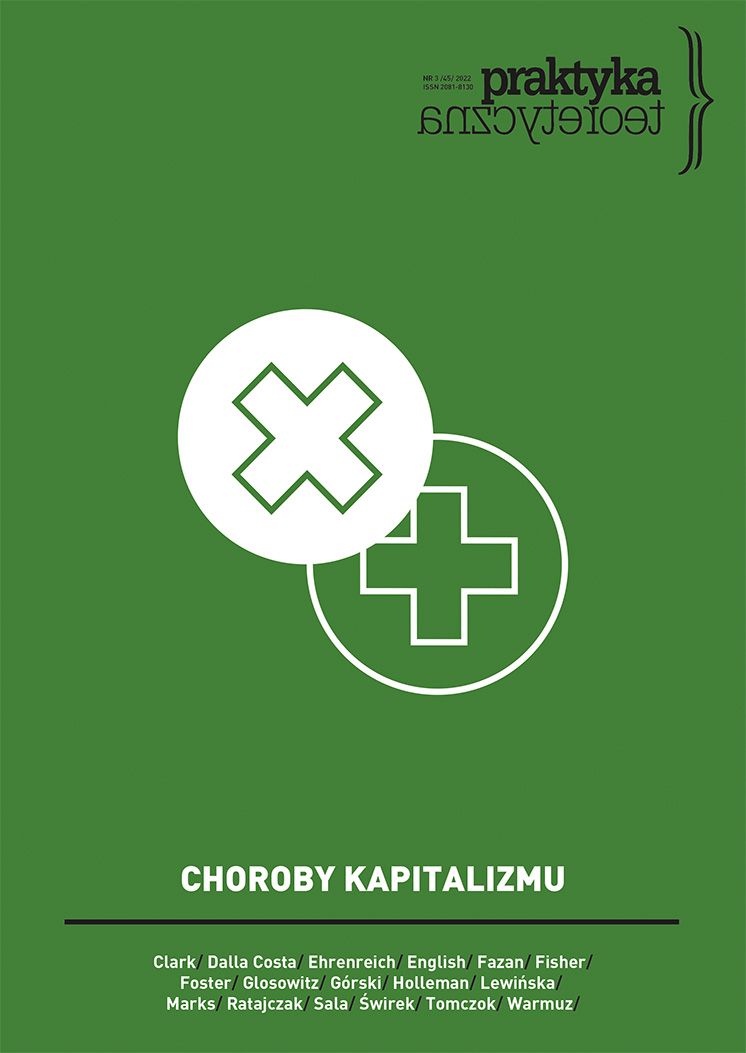Przymus, odmowa, niemoc. O niepłodności i bezdzietności w kapitalizmie
Coercion, denial, futility. On infertility and childlessness in capitalism
Author(s): Teresa FazanSubject(s): Social Sciences, Sociology, Demography and human biology, Sociology of Politics
Published by: Uniwersytet Adama Mickiewicza
Keywords: childlessness; disability studies; feminism; infertility; reproduction; social reproduction theory (SRT); stratified reproduction
Summary/Abstract: According to WHO guidelines, infertility is a global health issue influenced by environmental and lifestyle factors, which makes it a contemporary dise-ase of civilization. Consequently, it can be considered a disease of capitalism: first, within a biopolitical economy rendering humans tools of biological and social reproduction, infertility comes to the fore as a dysfunctional state; second, it is a plan-ned or accidental consequence of living in an industrialized and polluted environ-ment. In the article, I look at the consequences of defining infertility as a disease. By employing the difference between notions of impairment and disability as pro-posed by disability studies researchers, I trace the complex relationship between infertility and childlessness. While employing the theory of social reproduction’s findings and the notion of stratified reproduction, I criticize the analysis of the medicalization of infertility suggested by liberal feminism. I propose that infertility is an inherent element of the system of capital-controlled spheres of social reproduction that, along with mechanisms of heteronormativity, sexualization, and racialization, facilitates or hinders the biological and social reproduction of specific groups. Recalling the Polish context, I look at the ways in which capitalism and the conservative-liberal state co-create pro-family narratives. As I show, those narratives serve the reproduction of workers for capital and citizens for the nation-state, rather than providing equitable access to reproductive health.
Journal: Praktyka teoretyczna
- Issue Year: 2022
- Issue No: 45
- Page Range: 69-96
- Page Count: 28
- Language: Polish

